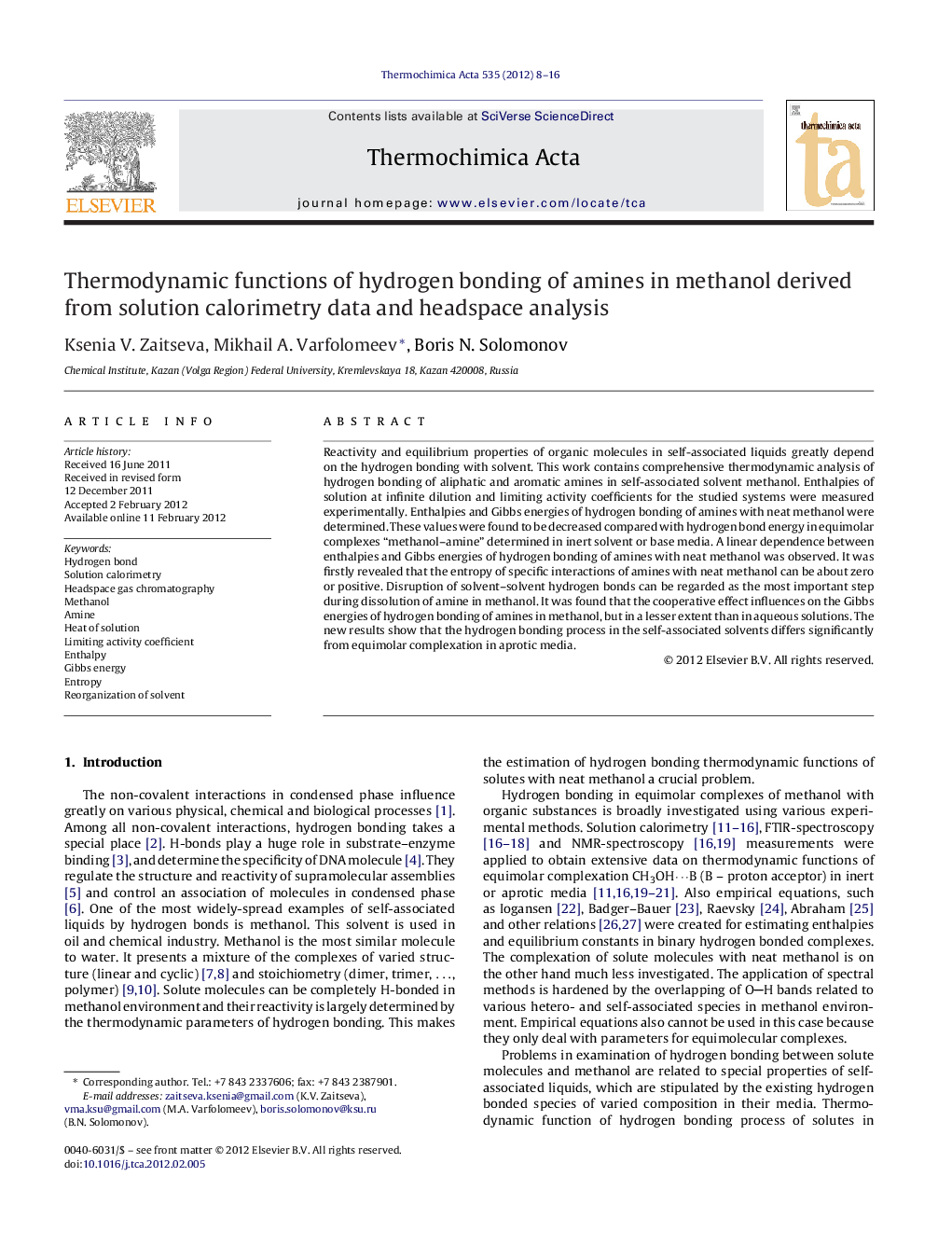| Article ID | Journal | Published Year | Pages | File Type |
|---|---|---|---|---|
| 674198 | Thermochimica Acta | 2012 | 9 Pages |
Reactivity and equilibrium properties of organic molecules in self-associated liquids greatly depend on the hydrogen bonding with solvent. This work contains comprehensive thermodynamic analysis of hydrogen bonding of aliphatic and aromatic amines in self-associated solvent methanol. Enthalpies of solution at infinite dilution and limiting activity coefficients for the studied systems were measured experimentally. Enthalpies and Gibbs energies of hydrogen bonding of amines with neat methanol were determined. These values were found to be decreased compared with hydrogen bond energy in equimolar complexes “methanol–amine” determined in inert solvent or base media. A linear dependence between enthalpies and Gibbs energies of hydrogen bonding of amines with neat methanol was observed. It was firstly revealed that the entropy of specific interactions of amines with neat methanol can be about zero or positive. Disruption of solvent–solvent hydrogen bonds can be regarded as the most important step during dissolution of amine in methanol. It was found that the cooperative effect influences on the Gibbs energies of hydrogen bonding of amines in methanol, but in a lesser extent than in aqueous solutions. The new results show that the hydrogen bonding process in the self-associated solvents differs significantly from equimolar complexation in aprotic media.
► Solution enthalpies and activity coefficients of amines in methanol were measured. ► Thermodynamic functions of H-bonding of amines with methanol were determined. ► Specific interaction entropy of amines in methanol can be about zero or positive. ► Cooperativity of H-bonds in methanol media is smaller than in water solutions. ► A new view on analysis of specific interaction of solute with methanol is presented.
